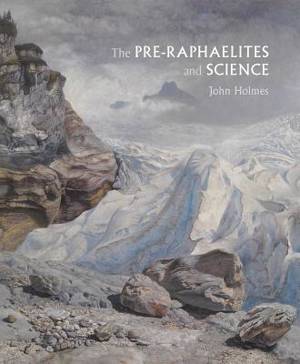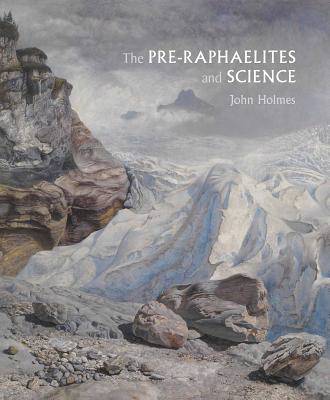
Door een staking bij bpost kan je online bestelling op dit moment iets langer onderweg zijn dan voorzien. Dringend iets nodig? Onze winkels ontvangen jou met open armen!
- Afhalen na 1 uur in een winkel met voorraad
- Gratis thuislevering in België vanaf € 30
- Ruim aanbod met 7 miljoen producten
Door een staking bij bpost kan je online bestelling op dit moment iets langer onderweg zijn dan voorzien. Dringend iets nodig? Onze winkels ontvangen jou met open armen!
- Afhalen na 1 uur in een winkel met voorraad
- Gratis thuislevering in België vanaf € 30
- Ruim aanbod met 7 miljoen producten
Zoeken
Omschrijving
This revelatory book traces how the Pre-Raphaelite Brotherhood and their close associates put scientific principles into practice across their painting, poetry, sculpture, and architecture. In their manifesto, The Germ, the Pre-Raphaelites committed themselves to creating a new kind of art modeled on science, in which precise observation could lead to discoveries about nature and humanity. In Oxford and London, Victorian scientists and Pre-Raphaelite artists worked together to design and decorate natural history museums as temples to God's creation. At the same time, journals like Nature and the Fortnightly Review combined natural science with Pre-Raphaelite art theory and poetry to find meaning and coherence within a worldview turned upside down by Darwin's theory of evolution. Offering reinterpretations of well-known works by John Everett Millais, William Holman Hunt, Dante Gabriel Rossetti, Ford Madox Brown, and William Morris, this major revaluation of the popular Victorian movement also considers less-familiar artists who were no less central to the Pre-Raphaelite project. These include William Michael Rossetti, Walter Deverell, James Collinson, John and Rosa Brett, John Lucas Tupper, and the O'Shea brothers, along with the architects Benjamin Woodward and Alfred Waterhouse.
Published in association with the Paul Mellon Centre for Studies in British Art
Published in association with the Paul Mellon Centre for Studies in British Art
Specificaties
Betrokkenen
- Auteur(s):
- Uitgeverij:
Inhoud
- Aantal bladzijden:
- 308
- Taal:
- Engels
Eigenschappen
- Productcode (EAN):
- 9780300232066
- Verschijningsdatum:
- 17/07/2018
- Uitvoering:
- Hardcover
- Formaat:
- Genaaid
- Afmetingen:
- 234 mm x 284 mm
- Gewicht:
- 1655 g

Alleen bij Standaard Boekhandel
+ 94 punten op je klantenkaart van Standaard Boekhandel
Beoordelingen
We publiceren alleen reviews die voldoen aan de voorwaarden voor reviews. Bekijk onze voorwaarden voor reviews.











